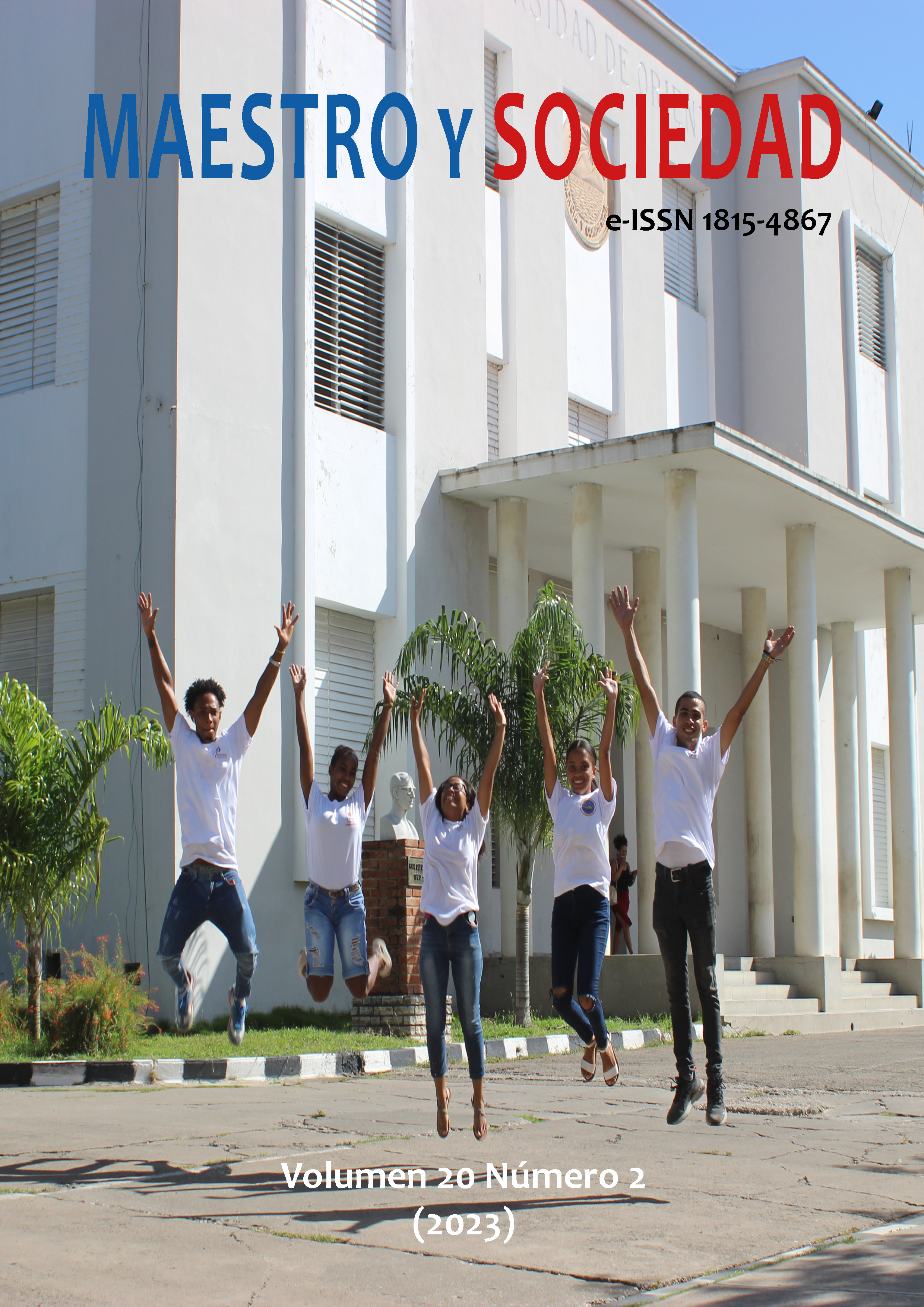Criminal tax liability
Criminal tax liability
Keywords:
Protected legal right, tax culture, fraud, crime, equityAbstract
Introduction: The present work has the purpose of visualizing the criminal offense in tax matters in Ecuadorian legislation, analyzing the constitutional and legal regulatory framework related to illegal tax conduct in Ecuador. Also review, doctrinal elements regarding tax offenses; and, determine the criminal types in the tax area. Materials and methods: The methodology used is qualitative, based on documentary analysis, legal and constitutional regulations; some works of experts on the subject. Results: Cultural elements, positions, definitions, expert contributions, validity of legal regulations on criminal conduct in terms of tax fraud. Discussion: The co-responsibility that we have as citizens in the construction of jointly sharing social obligations through the payment of collectively discerned and approved taxes. Conclusions: This work is a practical exercise of normative theoretical demonstration in a very special legal and social context that allows us to appreciate changes in tax culture and state policies. Although tax revenues have increased notably in recent years, however, transforming the general culture of evasion and social resistance to paying taxes is a task that is just beginning. It is necessary to strengthen respect for the law and the institutional framework that monitors and cures criminal behaviors that break the order and put the social organization and its institutional structure at risk, which guarantees the harmonious coexistence of society and respect for human rights.
Keywords: Protected legal right, tax culture, fraud, crime, equity.
References
Asamblea Nacional del Ecuador. (2009). Ley Orgánica Reformatoria e Interpretativa a la Ley de Régimen Tributario Interno, al Código Tributario, a la Ley Reformatoria para la Equidad Tributaria del Ecuador y a la Ley de Régimen del Sector Eléctrico. https://www.asambleanacional.gob.ec/documentos/DataDocumentos/Referencias/20132013_Nov_11/LEY_ORGANICA_REFORMATORIA_E_INTERPRETATIVA.pdf
Asamblea Nacional del Ecuador. (2010). Ley de Régimen Tributario Interno. https://www.sri.gob.ec/DocumentosAlfrescoPortlet/descargar/2f3d3c03-94e9-42c1-86d71080d8c7cf0e/Ley%20de%20R%C3%A9gimen%20Tributario%20Interno%20publicada%20en%20el%20Registro%20Oficial%20No.%20459%20del%2024%20de%20diciembre%20del%202010.pdf
Asamblea Nacional del Ecuador. (2014). Código Orgánico Integral Penal. https://www.oas.org/juridico/mla/sp/ecu/sp_ecu-int-codigo-penal-integral.pdf.
Bernal, C. (2016). Metodología de la Investigación. Cuarta Edición, Editorial Pearson. https://www.academia.edu/44228601/Metodologia_De_La_Investigaci%C3%B3n_Bernal_4ta_edicion.
Bird, R. M. y Zolt, E. M. (2019). Política fiscal y desarrollo. Manual de Análisis de Políticas Públicas: Teoría, Política y Métodos, 601-626.
Calvachi Cruz, R. (2002). Los delitos tributarios: La defraudación fiscal. Iuris Dictio, 5, 65-75. https://doi.org/10.33344/ij.v5i0.68
Castañeda Ramos, R., Arias Diaz, D., & Santos Maldonado, A. B. (2023). Control de bienes patrimoniales y su relación en el saneamiento físico e información contable en las municipalidades de Lima. Región Científica, 2(1), 202341. https://doi.org/10.58763/rc202341
Corporación de Estudios y Publicaciones. (2017). Constitución de la República del Ecuador: comentarios, legislación conexa, concordancias. Corporación de Estudios y Publicaciones. https://elibro.net/es/ereader/upse/115730?
Diep, Daniel. (2013). Evolución del tributo. Artículo publicado por la Universidad Abierta de México. http://www.universidadabierta.edu.mx/Biblio/D/Diep%20Daniel.
Fisher, E., & Gonzalez, Y. S. (2020). Qualifications and Certificates v Practical Knowledge and Experience: Is There a Winner? Business and Economic Research, 10(2), 1-21.
Folco, C.M., Abraldes, S.F., y López, J. (2017). Ilícitos fiscales. Buenos Aires: Rubinzal-Culzoni Editores.
Fraga, R. Herrera, C & Fraga, S. (2007). Investigación Socio-educativa. (s.e.).
Hadwa, Marcelo. (2007). El sujeto activo en los delitos tributarios, y los problemas relativos a la participación criminal. Polít. Crim., (3), 1-18. http://www.politicacriminal.cl
Kroeber, A. L. y Kluckhohn, C. (1952). Culture: A critical review of concepts and definitions. Papers of the Peabody Museum of American Archaeology and Ethnology. Harvard University, 47(1), 1-25.
Ministerio de Finanzas. (2022). Informe de seguimiento de las reglas fiscales II trimestre 2022. https://www.finanzas.gob.ec/wp-content/uploads/downloads/2023/02/Informe-de-seguimiento-de-las-Reglas-Fiscales-II-trimestre-2022.pdf.
Montesquieu, Ch. (2010). The Spirit of the Laws. Translated by Anne M. Cohler, Basia Carolyn Miller, and Harold Samuel Stone. Cambridge University Press.
Patiño, R. y Pozo, T. (2009.). Léxico Jurídico Tributario. Cuenca, Talleres Gráficos Universidad de Cuenca.
Real Academia Española. (2021). Diccionario de la lengua española. https://dle.rae.es/cultura.
Samhan Salgado, F. (2016). El ilícito tributario: Naturaleza jurídica y tratamiento en la legislación peruana. En Revista de Investigación Académica, XXIII(2), 1-17.
SRI -Servicio de Rentas Internas. (2022). Estadísticas de Recaudación. https://www.sri.gob.ec/estadisticas-generales-de-recaudacion-sri.
SRI Servicio de Rentas Internas. (2018). Código Tributario. https://www.ces.gob.ec/lotaip/2018/Agosto/Anexos-literal-a2/CODIGO%20TRIBUTARIO.pdf
UNESCO. (1982). Recomendación sobre el fomento de la creatividad y el desarrollo cultural. http://www.unesco.org/new/es/culture/themes/creativity/creativity-policydevelopment/recommendation-on-the-development-of-creative-content/
Welzel, H. (1987). Derecho Penal Alemán. (s.e.).
Downloads
Published
How to Cite
Issue
Section
License
Copyright (c) 2023 Cristóbal Homero Machuca Reyes, Sandra Josefina Andino Espinoza

This work is licensed under a Creative Commons Attribution-NonCommercial-NoDerivatives 4.0 International License.
This journal provides immediate open access to its content, based on the principle that offering the public free access to research helps a greater global exchange of knowledge. Each author is responsible for the content of each of their articles.



























 Universidad de Oriente
Universidad de Oriente 